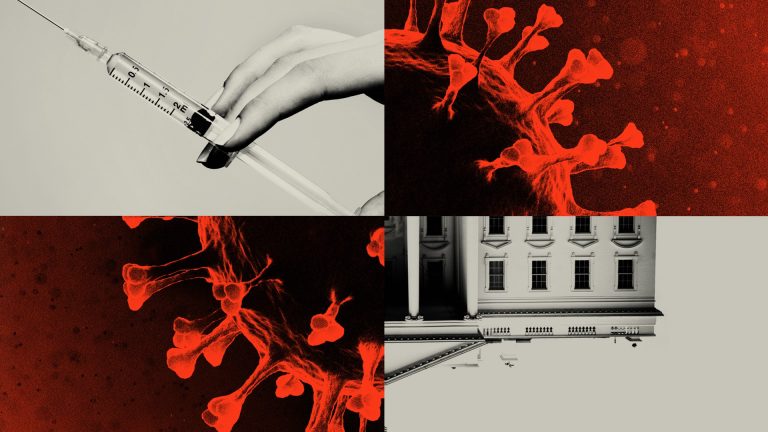
The coronavirus disease is wreaking havoc across the world and it is far from clear how long it will last. The full extent of the damage, both economic and non-economic, may not be known for a while. Already however, it is possible to draw some important lessons and underline key trends in a post-Covid-19 world.
The State is back, and how!
The centrality of the State has been brought into sharp relief during the Covid-19 crisis. Rather than debate whether it is the democratic or the authoritarian system of governance that has done better to cope with the virus, the key question to ask is what kind of a State is needed. Both South Korea and Taiwan are held out as model pupils which have coped successfully with the virus outbreak, but in both cases the State was not just ruthlessly efficient in implementing measures but also enjoyed a huge degree of trust with their respective population. In the case of China, the State was indeed strong but it is doubtful if it enjoyed the kind of trust that was necessary to tackle a crisis of this magnitude. Hence the initial missteps. Either way, the State is back!
The post-coronavirus world therefore will need a strong, efficient State which enjoys the trust of its people.
Public Health Security
It strikes one as bizarre that while countries boast of strategic food stocks and petroleum reserves to enhance their food and energy security, some of the richest countries do not have stocks of vaccines, paracetamol, masks or indeed the HCQ, or the hydroxychloroquine drug. In other words, public health security took a backseat in terms of countries’ priorities. This will definitely change.
Public health security will, henceforth outflank food and energy security and will equal, if not surpass national security in the calculations of countries in the post-coronavirus world.
Regional Value Chains to the fore
The era of unbridled globalisation, symbolised, inter alia, by just in time manufacturing may have run its course. The Covid-19 crisis has demonstrated that global value chains (GVCs) are extremely vulnerable and unreliable during times like this. There will be massive efforts to rework value chains based on geostrategic rather than purely economic criteria.
Regional value chains, based on geostrategic criteria, may ensue for production of strategic goods and services.
Social Safety Net for the poor
The economic impact of the coronavirus disease is expected to be huge and catastrophic. Already before the crisis, inequalities within countries were widening at an alarming pace. What the Covid-19 crisis has done is to highlight the terribly unequal fashion in which the virus impacts the rich and the not so rich. This is as true of rich countries such as the US where it is disproportionately affecting the Blacks or indeed in a country such as ours, where we saw the migrant labour put to distress. There is now talk of a new social compact.
In the post-Covid-19 world, it will be incumbent on most states to devise some kind of a social safety net which includes not just the right to food, to shelter, to education but also to health. The Covid-19 crisis has brought the issue of social security for the poor and vulnerable among us.
India’s Covid-19 Diplomacy
India has successfully navigated not just the lockdown but has also used the strategic opportunities which presented themselves. The quick decision to export vital drugs (like HCQ and Paracetamol) to both our neighbourhood and to key friends such as US, EU, Brazil and Israel was not just based on our larger philosophy of “Vasudhaiv Kutumbakam” – ‘the whole world is one family’ – but also on our efforts to meaningfully contribute towards tackling what is clearly a global crisis.
India must ramp up its production of active pharmaceutical ingredients in the near future. With around 70 per cent production of global vaccines and of drugs such as HCQ, India is well placed to fulfil the role of “net public health security provider” for the region and the world.
SDGs may have to be re-calibrated
As is well known, the Sustainable Development Goals (SDGs) were agreed to after a lengthy period of negotiations and the broad deadline for achieving those are 2030. The SDG 3 in particular talks of “ensuring healthy lives and promote well-being for all at all ages”. Without knowing the full impact of the coronavirus disease, it is hard to predict whether the necessary progress can be made to fulfil this goal. Also, depending on the economic impact of this crisis, especially on countries such as India, the other SDG goals such as “No poverty” and “Zero Hunger” may be impacted adversely.
There is a need to relook at the SDGs, both from the viewpoint of time frames as well as the resources that poor countries will need to achieve them in a timely manner.
It is Geopolitics, stupid!
In an ideal world, a crisis of this magnitude should make countries bury their narrow differences and get together for the sake of the common good. Yet, there is very little sign of that happening. Indeed, concrete multilateral cooperation has not been forthcoming at all.
There is more than a reasonable chance that great power rivalry, parochial national interests and raw geopolitics rule the roost in a post-Covid-19 world